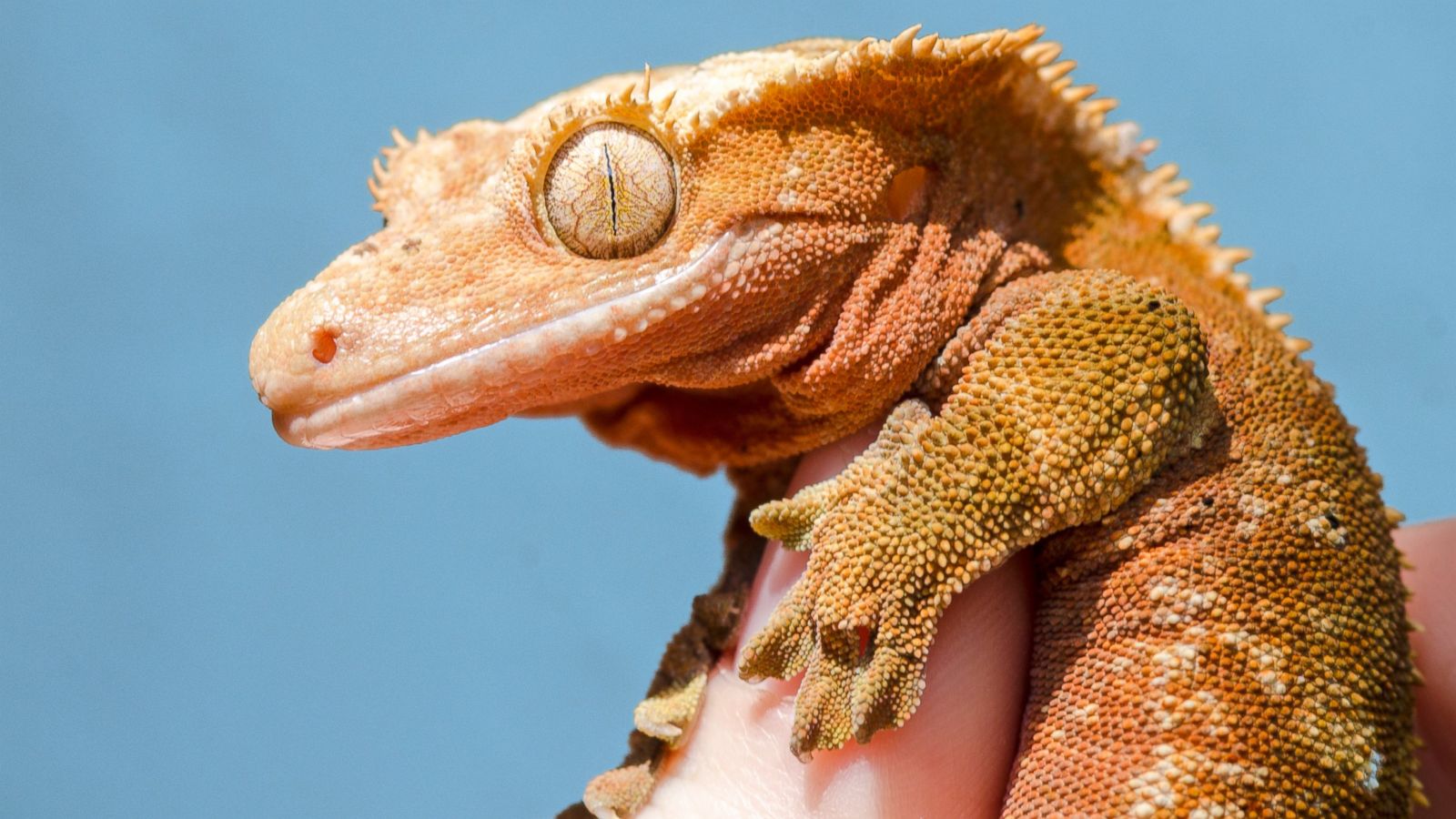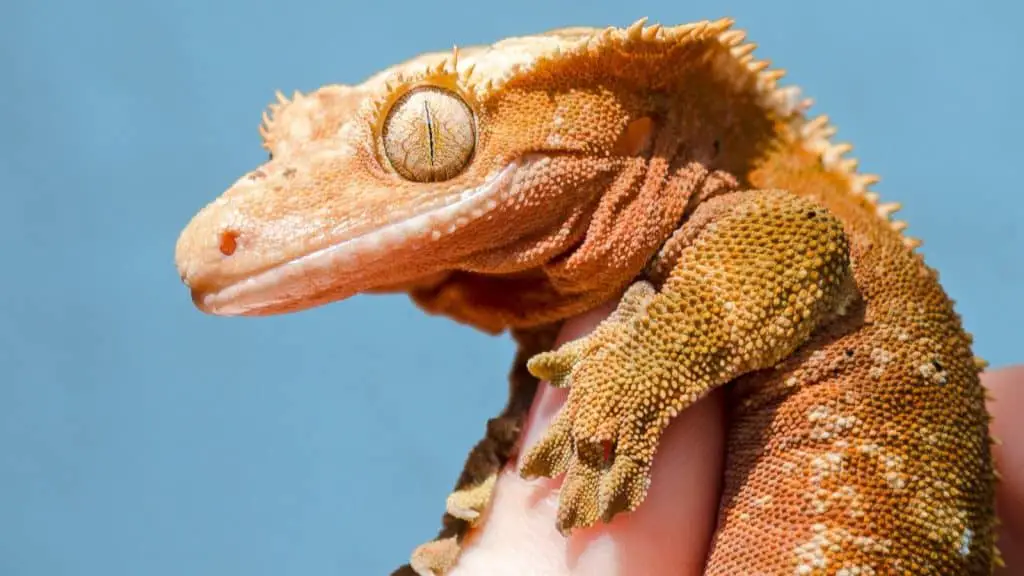Geckos are fascinating creatures that have captured the attention of many animal enthusiasts. They are known for their unique ability to climb walls and ceilings with ease, and their distinctive appearance has made them a popular choice as pets. However, there have been concerns regarding the potential health risks associated with keeping geckos as pets. One question that has been raised is whether geckos carry salmonella, a bacteria that can cause illness in humans.
Salmonella is a type of bacteria that can cause food poisoning and other illnesses in humans. It is commonly found in the intestines of animals, including reptiles like geckos. While geckos themselves may not exhibit any symptoms of salmonella, they can still carry the bacteria on their skin and in their feces. This has led to concerns about the potential health risks of owning a gecko as a pet, particularly for children and those with weakened immune systems.

Do Geckos Carry Salmonella?
Geckos are a type of lizard that are popular pets for many people. However, there has been a lot of concern about whether or not geckos carry salmonella. In this article, we will explore the topic of geckos and salmonella to help you make an informed decision about whether or not to keep a gecko as a pet.
What is Salmonella?
Salmonella is a type of bacteria that can cause food poisoning in humans. It is usually spread through contaminated food or water, but it can also be spread through contact with an infected animal. Symptoms of salmonella poisoning include diarrhea, fever, and abdominal cramps.
Geckos are known carriers of salmonella. This means that they can carry the bacteria on their skin and in their feces without showing any symptoms of illness. If you come into contact with a gecko that is carrying salmonella, you can become infected with the bacteria.
How Do Geckos Carry Salmonella?
Geckos can become infected with salmonella by eating contaminated food or water. Once they are infected, they can carry the bacteria on their skin and in their feces for months or even years. When a person comes into contact with a gecko that is carrying salmonella, they can become infected through direct contact with the gecko or through contact with surfaces that the gecko has touched.
It is important to note that not all geckos carry salmonella. However, it is difficult to tell which geckos are carriers of the bacteria and which are not. Therefore, it is important to take precautions when handling geckos or when cleaning up after them.
Preventing Salmonella Infection
There are several steps that you can take to prevent salmonella infection from geckos. The first step is to wash your hands thoroughly with soap and water after handling a gecko or cleaning up after them. You should also avoid touching your face or mouth while handling a gecko.
It is also important to clean and disinfect any surfaces that a gecko has come into contact with, such as their enclosure or any furniture or items that they have climbed on. You should use a disinfectant that is effective against salmonella, such as bleach or hydrogen peroxide.
If you have young children, elderly individuals, or individuals with weakened immune systems in your home, it may be best to avoid keeping geckos as pets. These individuals are at a higher risk of developing complications from salmonella infection.
Benefits of Keeping Geckos
Despite the risk of salmonella infection, many people still choose to keep geckos as pets. Geckos are low-maintenance pets that can be kept in a relatively small space. They are also fascinating creatures to observe and can make interesting and unique pets.
Geckos can also be beneficial for pest control. They are natural predators of insects and can help to control populations of pests such as mosquitoes, flies, and cockroaches.
Geckos vs. Other Pets
When it comes to choosing a pet, there are many factors to consider. Geckos are a good choice for individuals who want a low-maintenance pet that does not require a lot of space. They are also a good choice for individuals who are interested in observing and learning about reptiles.
However, geckos are not a good choice for individuals who want a pet that they can interact with or handle frequently. Geckos are not social animals and do not enjoy being handled. They are also not a good choice for individuals who have young children or individuals with weakened immune systems in their home.
Conclusion
In conclusion, geckos can carry salmonella and can potentially infect humans with the bacteria. However, with proper precautions, it is possible to minimize the risk of infection. If you are considering keeping a gecko as a pet, it is important to be aware of the risks and to take steps to prevent salmonella infection.
Frequently Asked Questions
Geckos are fascinating creatures that are popular as pets because of their unique appearance and behavior. However, there are concerns about whether geckos carry salmonella, a type of bacteria that can cause illness in humans. Here are some common questions and answers about this topic:
1. Do geckos carry salmonella?
Yes, geckos can carry salmonella bacteria. In fact, many reptiles, including geckos, are known carriers of this bacteria. Salmonella can live in the intestines of these animals and be shed in their feces, which can then contaminate their environment. This can pose a risk of infection to humans who come into contact with these animals or their habitats.
It’s important to note that not all geckos carry salmonella, and the risk of infection can be reduced by practicing good hygiene and sanitation when handling these animals. This includes washing your hands thoroughly with soap and water after handling them and avoiding contact with their feces or habitat.
2. How can I tell if my gecko is carrying salmonella?
You cannot tell if a gecko is carrying salmonella just by looking at it. Most animals that carry the bacteria do not show any signs of illness. The only way to know for sure if your gecko is carrying salmonella is to have it tested by a veterinarian.
If you are concerned about the risk of infection, it’s important to take precautions when handling your gecko or its habitat. This includes wearing gloves and washing your hands thoroughly with soap and water after handling them.
3. Can I get salmonella from touching my gecko?
Yes, it is possible to get salmonella from touching a gecko or its habitat. Salmonella can be present in their feces, saliva, and other bodily fluids, as well as on surfaces they come into contact with. If you touch these contaminated surfaces or the gecko itself and then touch your mouth or food, you can become infected.
To reduce the risk of infection, it’s important to practice good hygiene and sanitation when handling geckos. This includes washing your hands thoroughly with soap and water after handling them and avoiding contact with their feces or habitat.
4. How can I prevent salmonella infection from my gecko?
There are several steps you can take to prevent salmonella infection from your gecko. These include practicing good hygiene and sanitation when handling them, washing your hands thoroughly with soap and water after handling them, and avoiding contact with their feces or habitat. You should also clean and disinfect their habitat regularly to prevent the buildup of bacteria.
If you are at higher risk of infection, such as if you have a weakened immune system, it may be best to avoid handling geckos altogether. You can still enjoy these animals from a distance by observing them in their habitat or at a pet store or zoo.
5. What should I do if I think I have salmonella from my gecko?
If you think you have salmonella from your gecko, it’s important to seek medical attention right away. Salmonella can cause serious illness, especially in people with weakened immune systems. Symptoms of salmonella infection include diarrhea, fever, and abdominal cramps.
You should also notify your healthcare provider that you have been in contact with a gecko or other reptile, as this can help them make a diagnosis and provide appropriate treatment.
WHICH PETS CARRY SALMONELLA?
In conclusion, it is important to understand the potential risks associated with owning a gecko. While they can make great pets, it’s critical to take proper precautions to avoid the spread of salmonella. By practicing good hygiene, keeping a clean living environment, and handling your gecko safely, you can minimize the risk of contracting this harmful bacteria.
Remember, geckos are not the only animals that can carry salmonella. It’s important to follow these guidelines with any pet that has the potential to spread the bacteria. By taking these steps, you can enjoy the company of your gecko without putting yourself or your family at risk.
In the end, the decision to own a gecko is a personal one. However, it’s crucial to understand the potential health risks before bringing one into your home. With proper care and attention, you can minimize the risk of salmonella and enjoy the many benefits of owning a gecko.


